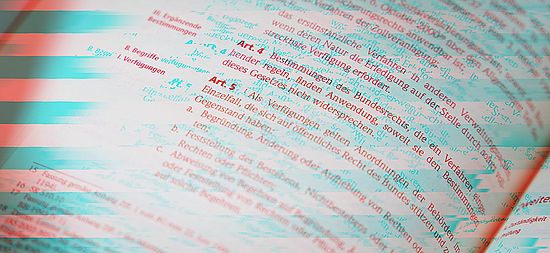
Comprehensible Algorithms
Comprehensible algorithms: a legal framework for the use of artificial intelligence
The regulation of artificial intelligence (AI) raises diverse and complex issues. Key challenges include the lack of transparency and traceability of decisions made by AI systems, the risks to privacy, the risk of discrimination and the risk of manipulation.
Under the direction of Prof. Dr. Florent Thouvenin (Zurich) and Prof. Dr. iur. Nadja Braun Binder, MBA (Basel) and in collaboration with Dr. iur. Stephanie Volz, RA (Zurich) and Liliane Obrecht, MLaw (Basel), this research project aims to create a comprehensive legal framework for the use of AI in Switzerland.
In addition to developing new possibilities for the interpretation and application of current law, generally applicable legal provisions and selected sector-specific regulations for public administration and the media sector will be developed. These new legal norms will be made known to decision-makers in politics and administration as well as to an interested public in the form of white papers. The legal findings will be published in the relevant scientific journals.
The project is supported by the Mercator Foundation.
Five white papers were published in June 2024 as key results of the project. Two of these white papers deal with the creation of transparency in public administration:
- White Paper Transparency through public register June 2024
- White paper Transparency through the justification of provisions June 2024
Further project results:
- The kick-off event for this project took place at the University of Zurich on November 10, 2021. The individual presentations and the panel discussion are available in the form of podcasts. The event was also held as a Strategy Lab of the Digital Society Initiative (DSI) and a position paper was presented that had been developed in August 2021 by an interdisciplinary group with the support of the Strategy Lab. The central subject of the event was Switzerland's positioning in the European and international environment, with various interest groups having their say. You can find the conference report here.
- The following article was published at the beginning of 2022: Braun Binder, Nadja/Kunz, Eliane/Obrecht, Liliane: Maschinelle Gesichtserkennung im öffentlichen Raum, sui generis 2022, pp. 53-61.
- The second public event for this project took place on November 8, 2022. The focus was on the presentation of the first interim results of the project and a presentation by Ambassador Thomas Schneider on the Council of Europe's draft convention on the use of artificial intelligence. You can find the conference report here.
- On November 22, 2022, Nadja Braun Binder gave an interview in Echo der Zeit aboutabout future developments in the use of automated individual decisions in public administration.
- The following article was also published in November 2022: Obrecht Liliane, Provision and automated individual decision-making - same same but different?, ex/ante 2022, pp. 38-45.
- The following article was published at the end of March 2023: Braun Binder, Nadja/Obrecht, Liliane, Algorithmically reviewed tax return in the ordinary mixed assessment procedure, ZSIS 2023 A1-2023, pp. 1-16
- On May 3, 2023, Nadja Braun Binder gave a presentation at TRANSFORM 20 23 entitled "AI in the public sector - questions from the perspective of legislation and application of law". The presentation slides are available here. The video of the lecture is available here.
- On May 10, 2023, a blog post on the automation of tax procedures in French by Nadja Braun Binder and Liliane Obrecht was published on swissprivacy.law: Automatisation et systèmes de gestion des risques au sein des administrations fiscales cantonales, which can be accessed online here.
- In July 2023, Liliane Obrecht wrote an overview article on the regulation of artificial intelligence in the journal no. 5/2023 of SWISSMECHANIC.
- At the end of May 2024, the article "Vertrauensschutz von fehlerhaften Behördenauskünften durch Chatbots" written by Nadja Braun Binder, Liliane Obrecht and Grace Wittmer was published on iusNET. It can be here be accessed online.
